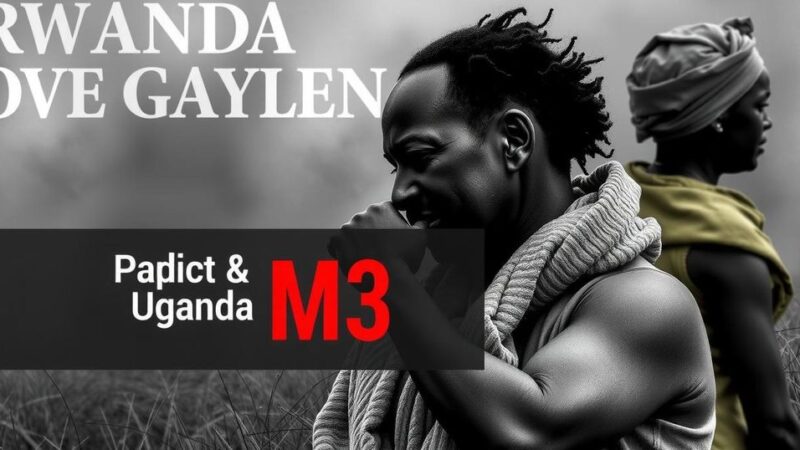The U.S. has accused Sudan’s RSF of genocide due to severe humanitarian impacts, while it continues to defend Israel against similar accusations. This raises questions about the consistency of U.S. foreign policy and adherence to international humanity standards, particularly given documented claims against Israel, leading to concerns of selective justice based on geopolitical alliances.
The distinction in the U.S. government’s approach toward allegations of genocide against Sudan’s Rapid Support Forces (RSF) and those directed at Israel raises pertinent questions about consistency in international human rights standards. U.S. Secretary of State Antony Blinken has explicitly stated that the RSF is guilty of genocide, citing the grave humanitarian crisis affecting millions in Sudan. Yet, despite documented accusations of war crimes and genocide against Israel, the U.S. has refrained from applying similar rhetoric or accountability to its ally. The selective application of the term ‘genocide’ suggests a complex interplay of geopolitics and international relations that warrants a thorough examination.
As the humanitarian crisis unfolds in Sudan with approximately 638,000 people suffering from famine, the U.S. has classified the RSF’s actions during the conflict with the Sudanese Armed Forces as genocide, pointing to systemic violence against ethnic groups. However, similar accusations against Israel, including the targeting of civilians and use of starvation as a tactic in Gaza, have been met with consistent U.S. support. The underlying rationale for not applying similar labels to Israel remains unclear, particularly given the Genocide Convention’s universally acknowledged definition of genocide, which includes acts intended to destroy ethnic groups.
The divergent reactions from the United States highlight a troubling inconsistency in addressing war crimes and genocidal actions. While Blinken emphasized the ethnic targeting of Sudan’s RSF towards specific groups, he did not reference the Genocide Convention when discussing these allegations. Furthermore, there are significant documented instances that suggest Israeli forces have engaged in similar conduct, including systematic violence against Palestinians. Despite overwhelming evidence and calls from various international bodies to recognize and respond to these allegations of genocide, the U.S. administration’s continued defense of Israel casts doubt on its commitment to international law and human rights standards. This discrepancy raises fundamental questions about the principles guiding U.S. foreign policy and its implications for the discourse on global justice.
In conclusion, the U.S. clearly demonstrates a dichotomy in its response to allegations of genocide, selectively applying the term based on geopolitical priorities. While Sudan’s RSF is condemned for genocidal acts, similar accusations directed at Israel are met with defense and dismissal. This inconsistency not only undermines the United States’ position on human rights but also highlights the complex dynamics of international relations, where political alliances can overshadow moral imperatives. It is crucial for international actors to hold all parties accountable without exception, ensuring that the principles of the Genocide Convention are uniformly applied to upholders and violators of human rights alike.
The article discusses the disparity in the U.S. government’s accusations of genocide against Sudanese militias and its defense of Israel amid similar allegations. In April 2023, the U.S. classified the actions of Sudan’s RSF as genocidal, citing the severe humanitarian crisis. In contrast, the U.S. has consistently refuted calls to label Israel’s actions in Gaza as genocide, resulting in significant debate about the implications of American foreign policy and international humanitarian standards.
The U.S.’s contrasting treatment of genocide allegations against the RSF in Sudan versus those against Israel illustrates a complex relationship influenced by geopolitical factors. The lack of consistent accountability raises significant moral questions and highlights a critical need for uniform application of human rights principles, regardless of political alliances. As the international community continues to grapple with these issues, it is imperative to uphold human rights standards universally to promote justice and accountability for all parties involved.
Original Source: www.aljazeera.com







